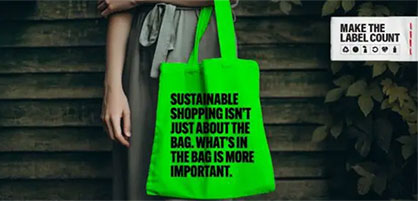#Raw Materials
A breakdown on the Wool LCA and European environmental legislation

In particular, MTLC says, claims made by textile brands must be accurate in order to empower consumers to make better informed purchasing decisions. Here, International Wool Textile Organisation sums up the key points of the letter.
The MTLC’s letter to the European Commission
MTLC is a coalition of organisations who represent a wide range of natural fibre producers from around the world. Coalition members work together to ensure that sustainability claims made by textile manufacturers are fair and credible. MTLC realises that it cannot bring about its goals without the aid of individual governments, as well as supranational bodies such as the European Union, enforcing strict standards of product labelling. With this in mind, the MTLC drafted an open letter to the European Commission, asking for increased regulation in this arena.
“Environmental claims need to be accurate if they are to empower consumers to make well-informed and truly impactful purchasing decisions,” the letter says. The question is what tools the Commission will use to assess the legitimacy and accuracy of product claims. This has been a major concern for the MTLC, as it explains in the letter:
“While the Commission is yet to confirm the tools it intends to deploy to underpin the assessment of claims, recent communications indicate that the Product Environmental Footprint (PEF) will be the primary tool used.
“Should the current PEF methodology be the basis for future regulation of eco-design requirements and substantiation of green claims – in particular those made for apparel and footwear – we (MTLC) are concerned that its use would omit the consideration of crucial product impacts that are the driving force behind the industry’s huge environmental damage.”
The Main Points of The Open Letter
The primary concerns raised in the letter are:
- The PEF currently omits crucial product impacts that are the driving force behind the environmental damage caused by the industry.
- The PEF needs to be changed if it is truly to be fit for purpose. To do this, three key indicators must be factored in: microplastic release, plastic waste and circularity. Targeted strategies exist for each of these, yet indicators to measure and report progress on them are lacking.
- The MTLC presented suggestions for ways in which the PEF can be improved in these areas. In particular, it was stressed that a circularity indicator must be included and given sufficient weighting to send a strong signal to the market.
The MTLC’s letter to the European Commission
https://www.makethelabelcount.org/globalassets/make-the-label-count/documents/mtlc_open-letter-to-european-commission_oct-2022.pdf













